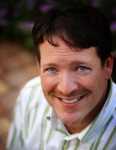Sacred cows

Ori Brafman and Rod Beckstrom are Silicon Valley entrepreneurs, neither pastors nor theologians. As someone who writes on issues of faith, these men are about as far from the pulpit or seminary as one could get. Yet, I have found their insights to be invaluable.
In their book, The Starfish and the Spider, these two take a detailed look at the native Apache tribe of what is now the Southwestern United States. The Spanish were unsuccessful in subduing this wild band. The Mexicans likewise failed. At first, the Americans fared no better. For hundreds of years the Apache maintained their independence against all would-be colonizers, threatening American power right up to the turn of the twentieth century.
Adaptable, decentralized, as fluid as the wind that blew across their deserts, the Apache would not yield. Then, the American government gave the Apache tribal leaders cows. And everything changed. Once in possession of this rare resource, and with the buffalo population hunted to extinction, wealth in the form of walking, bawling bovines became the virus that ate away Apache society from the inside out.
The tribal leaders used the cow as a form of reward and punishment to control rather than lead their society. Flexibility was replaced by centralized accountability and rigidity. The eagerness to travel, and thus remain outside the American Empire's control, was abandoned for the white man's farm. To be an Apache no longer meant being a part of the land, being owned by creation. Now the Apache had wealth -- ownership of things -- cows -- and according to Brafman and Beckstrom, it broke their society.
Wealth is not inherently evil, but it is dangerous; especially for the tribe known as the church. Wealth blinds us to the distress of others as we work to amass our own possessions and protect our ecclesiastical fortunes, trading in a generous, service-directed way of life for bigger profits, softer lifestyles, sacred cows and strategies we proudly call "faithfulness."
Whenever I hear the phrase, "We are called to be good stewards," I take it as a code word for self-preservation that is breaking us. Consider this: Americans give more to churches and religious organizations than any other charitable vehicle. Eighty-five cents out of every dollar given to churches is spent internally and only 2% -- two cents out of every dollar put in the offering -- ever makes it out of our country.
If American churches reallocated the dollars they spend on building construction and maintenance to food and education programs (about $19 billion a year), global starvation and malnutrition would be eliminated in less than a decade. American churches could provide clean drinking water and sanitation to every person on the planet with only 15% of their annual corporate income.
May our eyes be ripped from their sockets to see that 1 billion people are living in wretched poverty; 700 million live in slums and substandard housing; 500 million are on the verge of starvation; and 2.5 billion people are thirsty for clean water -- all while we have the resources to do something about it.
Our wealth must be pushed away from us and out into the world where it can serve God and not our profit-loss statements or our monthly financial reports read in the church business meeting. For neither the Christian nor the church are ends unto themselves -- spiritually or materially -- but we are called, as the people of God and imitators of Jesus Christ, to bless and serve the world.
It will be in serving others that the church will save itself from becoming nothing more than a spiritualized 501c3 not-for-profit, self-centered corporation, organized for the benefit of donor tax exemption and protecting sacred cows.
Because in the economy of Jesus, only those who serve will be served, only those who choose to be last shall be made first, and only those who humble themselves as servants will be exalted. Serving others -- and serve others we must -- will remind us of our identity and call us out from this self-absorbed, selfish world to be people of genuine faith.
Ronnie McBrayer is a syndicated columnist, speaker, and author of multiple books. You can read more and receive regular e-columns in your inbox at www.ronniemcbrayer.net.
